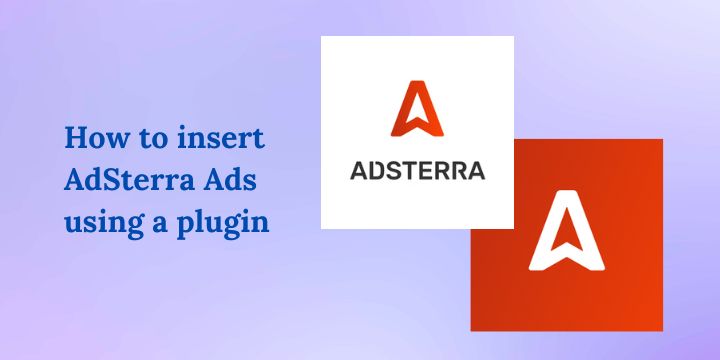How to monetize a Christian blog

Now that you have started a website and you are getting a decent amount of traffic, it is time to figure out how to monetize a Christian blog. This will help you gain some passive income in the long run. You can become a full-time content creator when your website is receiving a lot of traffic and generating stable revenue.
There are many ways to monetize a Christian blog. It is wise to test different monetization methods to see which works best for your Christian blog. Most people consider displaying Ads on their blog posts. However, other monetization methods can make you a decent monthly income and they do not require you to have a lot of traffic to your Christian blog.
What to consider before monetizing a Christian blog
Every monetization method is unique and has its requirement. If you are thinking of displaying Ads on a Christian website then, you will need to consider the following ad monetization requirements. Other advertising networks exempt you from these requirements, we will discuss those advertising networks in the next topic below.
How to monetize a Christian blog
There are many ways to monetize a Christian blog and each method has its requirement. Below is a list of the different ways on how to monetize a Christian blog.
Displaying Ads
This is the most common blog monetization method that everyone is familiar with. Most sites utilize this monetization method as it is easy as long as you have the required web traffic. Google AdSense is the known Ad network even though there are many other advertising networks in the market. We will discuss them in the next topic below.
Affiliate programs
This monetization method is suitable for certain content. You can promote books, electronics, household products, web hosting packages, podcast programs, domain registration, and many more. The advantage of affiliate marketing is that you get a good commission for every sale through your referral link. You can earn from 10%-80% commission for every successful conversion.
You do not need much traffic to achieve this. This makes it easy to monetize a Christian blog from day one. I deploy this on this very website.
They are various affiliate programs you can join. You can consider the following affiliate networks to find affiliate opportunities and get started today.
Selling eBooks
It is good to have a variety of monetization methods on your Christian website. You can make a decent income by selling digital products on your site such as eBooks. Just installed a WooCommerce plugin to enable you to transform your website into an e-commerce store and display your eBooks on the shop page. Check this Christian website for inspiration.
Accept donations
You can create a donation page where your Christian audience can support your work online. Create a PayPal account or a Patreon account and insert the donation link on your Christian website. I deploy this method on two of my Christian websites.
Start an online course
You can start an online course with monthly subscriptions to access your course materials. Do not limit yourself, you can teach any subject that is relevant to your niche. Use this as an opportunity to share your experience and get paid for it.
Sponsored content
When your Christian website becomes popular it will attract advertisers who will want to work directly with you. They will pay you to display the product banners on your blog for a premium monthly fee. This method is deployed by big websites such as news sites, health sites, and large Christian websites. The criteria are simple; you only need to have a quality amount of traffic to your Christian blog. At this point, you will not need to work with any advertising network anymore.
Podcast
Podcasts are becoming popular and you can use them to create an audience for your Christian website and direct that traffic to your blog. You can earn a steady income podcasting through sponsorships, where you promote other people’s products and earn a commission for every successful sale. Your audience can also support you through Patreon or PayPal. Check this article on the best Christian podcast hosting.
YouTube
Consider integrating affiliate marketing with YouTube. This is how it works, you create content for your YouTube channel and earn revenue through advertisements. Then, you insert your Christian blog links on your YouTube video description and ask people to click on them to visit your website. When they visit they will likely click on any affiliate links on your Christian blog, that way you make extra revenue from YouTube and your website.
How to monetize a Christian blog with Ads
You will need to sign-up for an advertising network and get approved before displaying any ads. Each advertising network has its advertising policy. Most of them use CPM (Cost Per Mile)- meaning you will get paid a certain amount for every 1000 impressions. An impression is considered any time an Ad is displayed to your website visitors.
Advertising networks will also utilize CPC (Cost-Per-Click)- meaning you get paid for every Ad click. CPA (Cost Per Action)- meaning you will get paid when someone completes an action such as filling a form. For now, don’t worry about these terms they will make sense when you begin running ads on your Christian blog.
Below is a list of the popular ad networks and their requirements
| Ad Network | Requirements |
|---|---|
| Google AdSense | Your website should be 3 -6 months old and meet all the above requirements. Adhere to Google publishers’ policies. |
| Ezoic | Beginner friendly and there is no traffic limit Adhere to Googles publishers’ policies |
| AdSterra | No monthly page view limit. Accept all kinds of websites (some limits may apply). |
| Mediavine | Minimum of 50,000 sessions per month. Have a good standing with Google AdSense |
| AdThrive | 100,000 monthly page views. Most of the traffic must come from the USA |
For new websites and sites with no traffic, I recommend Ezoic and AdSterra. Ezoic pays better than Google AdSense. You will need Google ad management approval to qualify for Ezoic.
AdSterra does not require any Google ad management approval making it suitable for anyone who has been rejected by Google Adsense or Ezoic. It offers different ad formats including social bar, native banners, popunder, vast video ads, and display banners.
How to monetize a Christian blog without ads
You can monetize a Christian blog with affiliate programs and earn a good commission for every successful referral. Choose from any of the following affiliate programs;
Check the list of the best Christian affiliate programs for Christian bloggers to consider.
Other methods include selling eBooks, donations, online courses, and sponsored content. By the end of the day, your goal is to make some revenue. Therefore, choose a monetization approach that is suitable for your Christian website. You can also use a variety of monetization methods at the same time such as Ads, affiliate programs, sponsored content, selling eBooks, and accepting donations.
Blog monetization FAQs
Disclosure: We may earn commission for purchases that are made by visitors on this site at no additional cost on your end. All information is for educational purposes and is not intended for financial advice. Read our affiliate disclosure.






